
Dadabhai Naoroji also known as the "Grand Old Man of India" and "Unofficial Ambassador of India", was an Indian political leader, merchant, scholar and writer who served as 2nd, 9th, and 22nd President of the Indian National Congress from 1886 to 1887, 1893 to 1894 and 1906 to 1907. He was a Liberal Party Member of Parliament in the British House of Commons, representing Finsbury Central between 1892 and 1895. He was the second person of Asian descent to be a British MP, the first being Indian MP David Ochterlony Dyce Sombre, who was disenfranchised for corruption after nine months in office.

Amitav Ghosh is an Indian writer. He won the 54th Jnanpith award in 2018, India's highest literary honor. Ghosh's ambitious novels use complex narrative strategies to probe the nature of national and personal identity, particularly of the people of India and South Asia. He has written historical fiction and also written non-fiction works discussing topics such as colonialism and climate change.
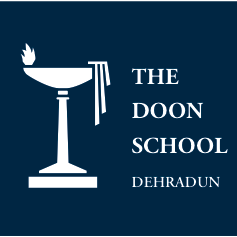
The Doon School is a selective all-boys private boarding school in Dehradun, Uttarakhand, India, which was established in 1935. It was envisioned by Satish Ranjan Das, a lawyer from Calcutta, as a school modelled on the British public school while remaining conscious of Indian ambitions and desires. The school admitted its first pupils on 10 September 1935, and formally opened on 27 October 1935, with Lord Willingdon presiding over the ceremony. The school's first headmaster was Arthur E. Foot, an English educationalist who had spent nine years as a science master at Eton College, England.

Satish Ranjan Das (1870–1928) was the Advocate-General of Bengal and later the Law Member of the Executive Council of the Viceroy; he was sometime treasurer of the Boy Scouts of Bengal and the Lodge of Good Fellowship, and a prominent member of the reformist Brahmo Samaj in Bengal. Das was part of a group of moderate Indian nationalists that sought to create a "British-style" public school in India, which ultimately led, after his death, to the creation of The Doon School.
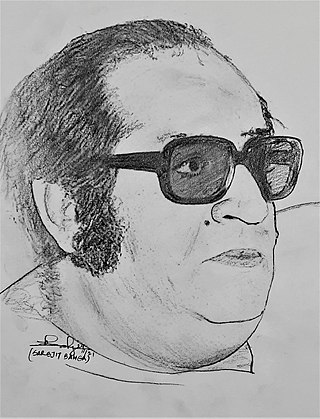
Piloo Mody was an Indian architect and politician and one of the founding members of the Swatantra Party. Elected to the 4th and 5th Lok Sabhas, he served in the Rajya Sabha from 1978 until his death.
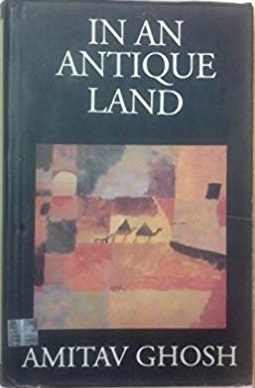
In an Antique Land is a 1992 book written in first-person by Indian writer Amitav Ghosh recounting his experiences in two Egyptian villages attempting to retrace accounts of an unknown Indian slave, as well as a reconstruction of the life of a 12th-century Jewish merchant in the area. It describes a variety of characters, going into great detail regarding their lives and Ghosh's interactions with them.
Arthur Edward Foot CBE, was an English schoolmaster, educationalist and academic. He was a science master at Eton College from 1923 to 1932. In 1935, he was invited to India to head a newly opened all-boys boarding school, the Doon School, where he was the first headmaster from 1935 to 1948. He then returned to England as head of another new school, Ottershaw.
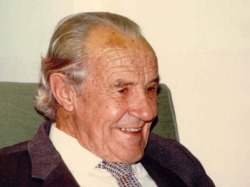
John A. K. Martyn OBE (1903–1984), was an English schoolmaster, scholar, academic and a distinguished British Himalayan mountaineer. He was the second headmaster of The Doon School.

Christopher J. Miller was an English academic, professor and scholar. He served as the third English headmaster of The Doon School, India from 1966 till 1970 and the last English one before the appointment of Matthew Raggett in 2016. He had an MA from University of Cambridge. During his tenure at Doon, his protégés included: Vikram Seth, Karan Thapar, Amitav Ghosh, Ramchandra Guha.
Eric Joseph Simeon (1918–2007), was an Indian school educationalist. He was the headmaster of some of the distinguished schools of India from 1960s to the mid-1980s. He served as the headmaster of La Martiniere Calcutta, The Doon School and Cathedral and John Connon School.

Sudhir Ranjan Khastgir was an Indian painter of Bengal school of art and an art educator. A pupil of Abanindranath Tagore and Nandalal Bose, Sudhir was known for "Indian style" of painting. He graduated from Visva-Bharati University at Santiniketan in 1929. He was influenced by the Tagore family and his classic works include paintings of scenes from Indian mythologies, women, and village life. He was also the first Art teacher at The Doon School, Dehradun, when it opened in 1935. Today, the many statues and murals on display at Doon, and frescoes of dancers at the entrance of a local cinema hall, 'The Orient', are a product of his creation.

John Travers Mends Gibson was an English schoolmaster, scholar, academic and a distinguished British Himalayan mountaineer.

The Doon School Weekly is a student newspaper produced by and for the students of The Doon School. It was established in 1936, a year after the school's founding, by the first headmaster Arthur Foot. The Weekly is the oldest and flagship publication of the school.
"Lab Pe Aati Hai Dua", is a duʿā or prayer, in Urdu verse authored by Muhammad Iqbal in 1902. The dua is recited in morning school assembly almost universally in Pakistan, and in Urdu-medium schools in India.

The Doon School Old Boys' Society is the alumni society of The Doon School, an all-boys boarding school in Dehradun, Uttarakhand, India, founded in 1935. It is considered to be among the most influential old boys' networks in India, with its alumni including a former Indian prime minister, politicians, diplomats, officers of the defence forces, writers and artists. The first president of the society was the Englishman Arthur Foot, who was the first headmaster at Doon. Alumni of the school are known as Doscos and after graduating gain life-membership to the society.

Matthew Jonathan Raggett is a British educator, writer and the former Headmaster of The Doon School, the all-boys boarding school in Dehradun, India. He succeeded Peter McLaughlin in 2016, becoming the tenth headmaster of the school. Raggett left Doon in January 2020 and returned to Germany. He was the fourth Englishman in Doon's history to head the school and was a member of The Headmasters' and Headmistresses' Conference, UK. Jagpreet Singh succeeded him as headmaster, and joined the school in June 2020.

Professor Sanjay Srivastava is a sociologist. He is currently at the Department of Anthropology and Sociology, SOAS University of London. He is visiting fellow at many institutions, including the Institute of Economic Growth, Delhi, India.
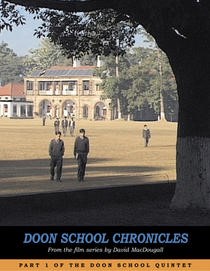
The Doon School Quintet is a five-part ethnographic film series made by the American visual anthropologist and documentary filmmaker David MacDougall, between 1997 and 2000, at The Doon School, an elite all-boys boarding school in India. For thirteen months over three years, MacDougall lived with the students and was given unprecedented access for filming inside the residential campus. By the end, MacDougall had more than 85 hours of material, which he edited into 5 parts, with a total duration of about 8 hours. The project ranks among MacDougall's most ambitious and longest works and is the only film series in his oeuvre.
Chetan Singh is an academic historian from Himachal Pradesh, India. He is noted for his work on the history of early modern and modern western Himalayas.
















